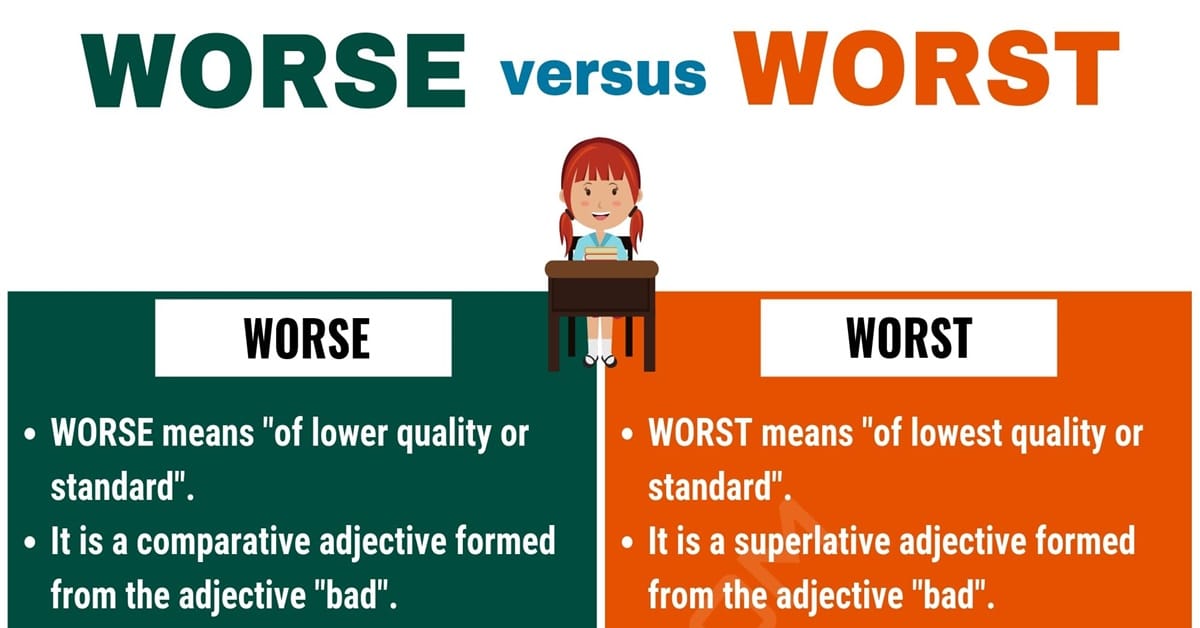Worse vs. worst! Many writers find homophones confusing, and this isn’t a surprise: it is easy to get lost when there are words that sound exactly the same but are spelled differently and have different meanings. However, homophones aren’t the only problem, since there also are comparative and superlative adjectives. Sometimes they look very similar to each other but they can never be used interchangeably, so it’s important to remember which is which. Take worse vs. worst, for example. Do you know when you should use each word?
Worse vs. Worst
WORSE means “of lower quality or standard”, while WORST means “of lowest quality or standard”.
Examples:
- The conditions they’re living in are worse than we thought.
- His manners are even worse than his sister’s.
- This is the worst storm we’ve had for years.
- The doctor’s report confirmed our worst fears.
When to Use Worse or Worst
Worse is a comparative adjective formed from the adjective “bad”. Just like all other comparative adjectives, it is used to compare one thing to another. For example, if you go to a restaurant where you are served food of very low quality, you can say, “Their food was worse than what I would have made at home myself”. Or, when reading a new book that isn’t quite as good as you expected, you might say, “This book is worse than anything I have read before”. This is how you would see this word used in a sentence in most cases: “A is worse than B”.
Worst, on the other hand, is a superlative adjective. It is also used when you compare things to each other, but it describes the thing that is worse than all the rest. For example, you can say, “I have tried a lot of alcoholic drinks but my experience with wine was the worst one”. A manager of a big company that didn’t do as well as it was hoping for this year, will say, “This has been our worst year so far”.
The reason why Worse vs Worst can cause problems is that it is an irregular pair of comparative and superlative adjectives. Most other comparative and superlative adjectives are formed by adding -er and -est, respectively, to the original adjective, e.g. Small -> Smaller -> Smallest. But the adjective “bad” doesn’t work like that, and so it can lead to some confusion.
Thankfully, there are ways to remember the difference. If you have a list of options in front of you, the worst option would be the one that you don’t want to do the most. Both worst and most end in -st. Keeping this in mind, you’ll be able to use worse and worst in your writing without fear.
Worse vs. Worst Examples
- I didn’t do it very well, but, if anything, he did it worse than I did.
- She can be a bit tetchy but her bark is worse than her bite.
- Peter is useless, far worse than I thought.
- He was treated much worse than I was.
- The news was even worse than we expected.
- It was the worst storm to hit London this century.
- To be honest, it was one of the worst books I’ve ever read.
- The worst of the weather comes in the winter.
- This is possibly their worst performance ever.
- The tent protected us from the worst of the weather.
How to Use Worse vs. Worst Correctly? | Picture
Worse vs. Worst: What’s the Difference?








0 Comments